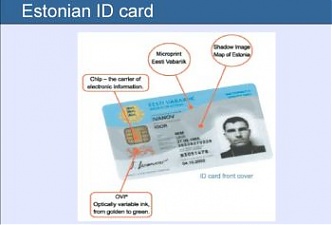Education and Science, Estonia, Legislation, Technology
International Internet Magazine. Baltic States news & analytics
Tuesday, 01.07.2025, 02:23
University of Tartu scientists identify 15 faulty ID-cards
 Print version
Print version |
|---|
"Arnis Parsovs, doctoral
students and lecturer at the University of Tartu, is one of the partners who
has investigated the ID-card for years and with whom RIA and the Police
and Border Guard Board actively cooperate. By analyzing the public keys
database of ID-cards, Parsovs identified a flaw in the production process of
the documents, as a result of which 15 cards had received weak keys that did
not comply with the requirements," RIA said.
Parsovs in the framework of research that he will publish next spring
showed on the ware of one faulty cards that in the event of such a production
error it is possible to forge a digital signature. That faulty card had never
been used electronically, RIA said.
The Police and Border Guard Board at the beginning of June closed those 15
faulty ID-cards and issued new cards to people under warranty. RIA also checked
the public keys of the certificates of all other documents and no other cards
with faulty keys were found.
RIA in cooperation with the Police and Border Guard Board has by now
improved their working processes to such an extent that it is no longer
possible for ID-cards with that type of a security risk to reach circulation,
spokesperson for RIA Helen Uldrich
told BNS.
RIA informed Gemalto, the company
that manufactured the electronic ID-cards, and the certification service
provider of the anomaly identified by the researcher and implemented measures,
which no longer allow cards with such a flaw to be produced.
The described flaw is not linked to the Infineon chip security risk that
was identified by Czech researchers and was announced to Estonia at the end of
August.
Individual flawed cards have also been produced before and have always been
closed after the identification of the flaw and the faulty cards have been
replaced under warranty. Researchers have been unsuccessful in breaking any
Estonian ID-cards that comply with the requirements.








 «The Baltic Course» Is Sold and Stays in Business!
«The Baltic Course» Is Sold and Stays in Business!

